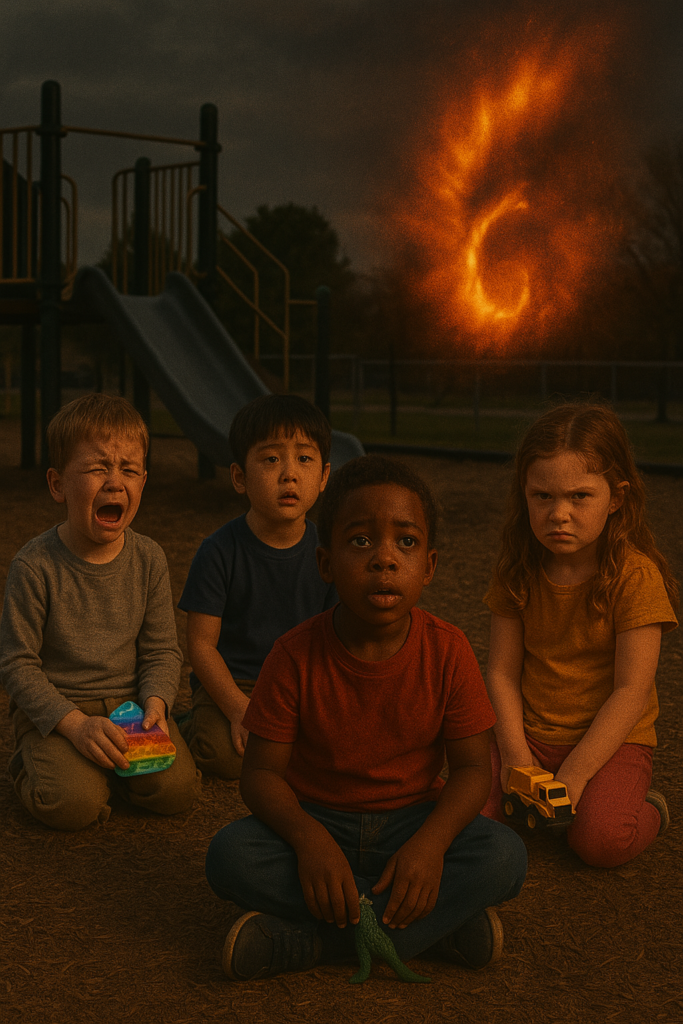
You’ve packed the snacks. You’ve rehearsed the social script. You’ve warned your kid (and yourself) twelve different ways. And then… 22 minutes in, someone’s crying, someone’s hiding, and someone’s asking to go home. (It’s you. You’re someone.)
If playdates feel like emotional CrossFit, you’re not alone. Especially if you’re parenting a child on the autism spectrum or with sensory sensitivities, playdates can be a wildcard—and that doesn’t mean anyone is doing it wrong.
1. Your Kid’s Nervous System Might Be on a Different Clock
Some kids need a warm-up period. Some need control over the setting. Some just don’t want to share their trains with someone they met 14 minutes ago—and they shouldn’t have to. If a playdate feels like a social ambush, your child’s “no thanks” might be regulation, not rudeness.
2. Social Fatigue Is Real—Even in Kids
It’s not always about skills—it’s about stamina. Your child might be completely capable of engaging, but that doesn’t mean they have the battery life to do it for 90 minutes, in a new house, with new expectations. Think of it like this: Just because you know how to run doesn’t mean you want to run a marathon at someone else’s house on a Sunday afternoon.
3. Not Every Kid Is Their Person
Here’s the truth: not every other child is a match. Your kid isn’t “behind” because they didn’t vibe with the neighbor’s son. Social compatibility matters—energy, pace, style. One kid might love imaginary games. Yours might be more into side-by-side solo LEGO time. That’s not failure. That’s personality.
4. Other Parents Might Not Get It (Yet)
Let’s be honest—there’s an emotional tax to managing your kid and another parent’s subtle glances, questions, or misunderstanding of what’s going on. If someone else doesn’t get sensory overload, scripting, or the need for a reset break, you might feel like you’re managing three nervous systems, not just one.
That’s not on you.
5. You Can Build Social Skills Without Forced Playdates
Newsflash: playdates aren’t the only path to friendship, connection, or growth. Kids build connection through:
- Parallel play at school
- Predictable sibling routines
- Shared activities like nature walks or baking
- Special interests (aka Pokémon, Minecraft, Bluey, etc.)
6. It’s Okay to Say No to a Playdate (Or End One Early)
Normalize this script:
“Thanks for the invite—today’s not a playdate day for us, but we’ll try again another time.”
Or:
“We’re going to wrap up early. Just following my kid’s lead today.”
No apology. No explanation. Just a boundary with grace.
Final Word
You’re not failing because playdates are tricky. You’re parenting with nuance. You’re learning your child’s rhythms. And you’re choosing connection over performance—which is the most powerful social skill of all.
So if today’s playdate didn’t work out? That’s okay. You can both try again when the timing, the energy, and the people align.
And if they don’t?
There are still a hundred ways to belong.